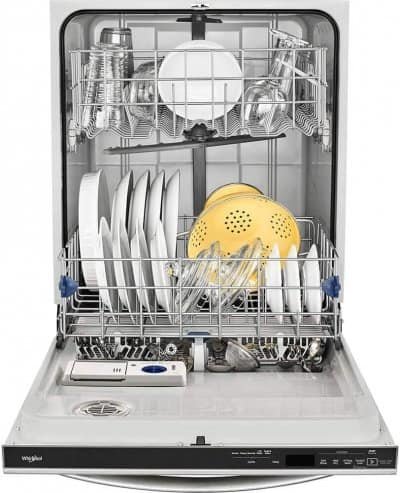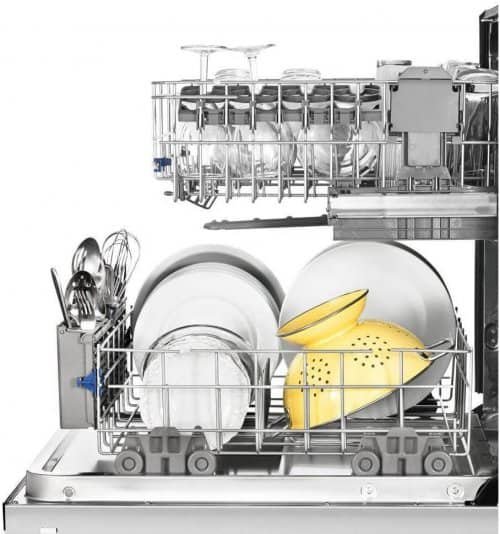Stove grates are essential components of gas or electric stoves that provide a stable platform for your pots and pans during cooking. Over time, these grates can accumulate grease, food particles, and stubborn stains, requiring regular cleaning to maintain their functionality and appearance. One common question that arises is whether it is safe to put stove grates in the dishwasher for cleaning. In this article, we will delve into this topic and explore the potential risks involved, alternative cleaning methods, and effective maintenance tips to keep your stove grates in top shape.
When it comes to cleaning stove grates, it is important to consider the material they are made of. Stove grates are typically constructed from materials such as cast iron, enamel-coated cast iron, steel, or porcelain. Each material requires specific cleaning techniques to avoid damage and maintain their longevity.
Table of Contents
Understanding Stove Grates
Before discussing dishwasher compatibility, let’s gain a better understanding of stove grates and their purpose. Stove grates serve as a support system for your cookware, distributing heat evenly and providing stability during cooking. They are designed with a grid-like structure to allow heat to pass through and prevent direct contact between the flame or electric coil and the cookware.
Can You Put Stove Grates in the Dishwasher?
Putting stove grates in the dishwasher may seem like a convenient option, but it is generally not recommended. Most manufacturers advise against cleaning stove grates in the dishwasher due to potential risks. The high heat and strong water jets in dishwashers can cause damage to the grates and affect their overall performance. Additionally, certain materials, such as cast iron, can be prone to rust if exposed to excessive moisture.
Potential Risks of Putting Stove Grates in the Dishwasher
While dishwashers are excellent for cleaning many kitchen items, stove grates pose specific challenges. Here are some potential risks associated with putting stove grates in the dishwasher:
- Damage to the Coating: Enamel-coated cast iron or porcelain grates can develop chips or cracks when exposed to the aggressive cleaning cycles in a dishwasher. This damage not only compromises their appearance but also affects their ability to distribute heat evenly.
- Corrosion and Rust: Some stove grates are made of materials that are susceptible to rust, such as cast iron or steel. Dishwashers expose these materials to prolonged moisture, which can lead to corrosion and rust formation, rendering the grates unusable.
- Warped Grates: The high heat and steam in dishwashers can cause certain materials, such as cast iron, to warp or become misshapen. Warped grates may no longer fit properly on your stove, affecting the stability and functionality of your cookware.

Alternative Cleaning Methods for Stove Grates
Although the dishwasher is not recommended for cleaning stove grates, there are several effective alternative methods to consider:
- Hand Washing: The most common and recommended method is to wash stove grates by hand. Start by removing any loose debris and soaking the grates in warm soapy water. Use a non-abrasive sponge or brush to scrub away grease and stains. Rinse thoroughly and dry the grates before reassembling them on your stove.
- Soaking in Vinegar: Another effective cleaning method involves soaking the stove grates in a solution of equal parts vinegar and water. Leave the grates submerged for several hours or overnight. The acidity of the vinegar helps break down stubborn stains and grease, making it easier to clean them off.
- Baking Soda Paste: For tough stains and grime, create a paste using baking soda and water. Apply the paste to the grates and let it sit for at least 20 minutes. Scrub gently with a sponge or brush, then rinse thoroughly.
Proper Maintenance and Cleaning Tips for Stove Grates
To keep your stove grates in optimal condition, follow these maintenance and cleaning tips:
- Regular Cleaning: Clean your stove grates after each use to prevent grease and food particles from accumulating. Wipe them down with a damp cloth or sponge to remove any residue before it hardens.
- Avoid Harsh Chemicals: When cleaning stove grates, avoid using harsh chemical cleaners or abrasive tools that can damage the material or coating. Stick to mild dish soap, vinegar, or baking soda for safe and effective cleaning.
- Protective Coating: Consider applying a thin layer of cooking oil to your stove grates after cleaning. This helps create a protective coating that prevents rust formation and makes future cleaning easier.
- Preventive Measures: To minimize the need for deep cleaning, use drip pans or foil liners under the grates to catch spills and drips. This will reduce the buildup of stubborn stains and make routine cleaning more manageable.
Can I clean stove grates in the dishwasher if they are made of stainless steel?
No, it is still not recommended to clean stainless steel stove grates in the dishwasher. Stainless steel grates can develop spots or discoloration when exposed to the high heat and harsh detergents in dishwashers. Hand washing is the safest method for cleaning stainless steel grates.
Will soaking stove grates in bleach help remove stubborn stains?
Bleach is not recommended for cleaning stove grates as it can cause discoloration and damage to the material. Stick to mild cleaners like dish soap, vinegar, or baking soda for safe and effective stain removal.
How often should I clean my stove grates?
It is best to clean your stove grates after each use to prevent the buildup of grease and food particles. Regular cleaning will make the task easier and help maintain the grates’ performance.
Can I use steel wool to scrub stubborn stains on stove grates?
Using steel wool or other abrasive tools is not recommended as they can scratch or damage the surface of the grates. Opt for non-abrasive sponges or brushes to avoid compromising the integrity of the grates.
Are there any commercial cleaning products specifically designed for stove grates?
Yes, there are commercial cleaning products available that are specifically formulated for cleaning stove grates. Always read the instructions and ensure the product is suitable for the material of your grates before use.
Conclusion
In conclusion, it is not recommended to put stove grates in the dishwasher for cleaning. The potential risks, including damage to the coating, corrosion, and warping, outweigh the convenience. Instead, opt for alternative cleaning methods such as hand washing, vinegar soaking, or using a baking soda paste. Regular maintenance and cleaning, along with preventive measures, will help keep your stove grates in excellent condition for years to come.

